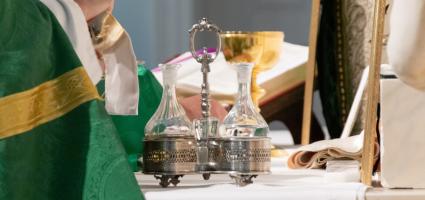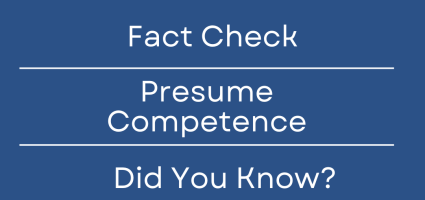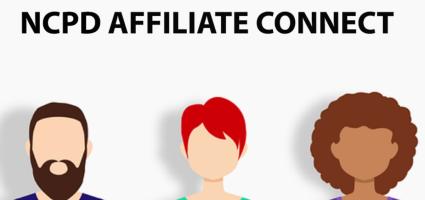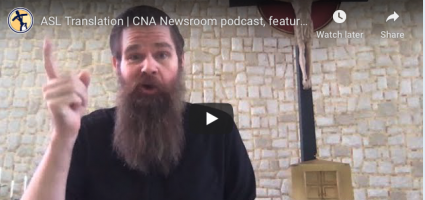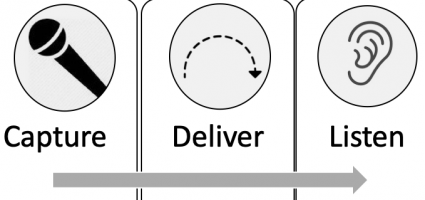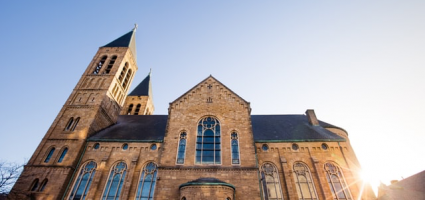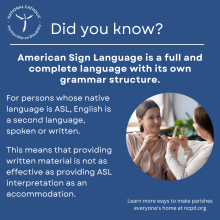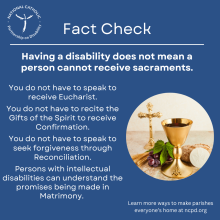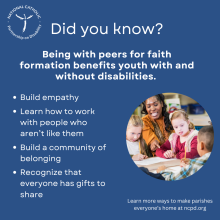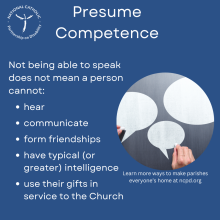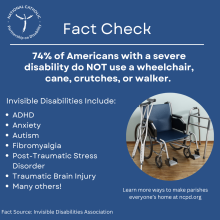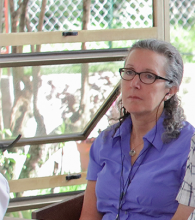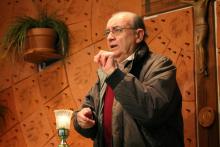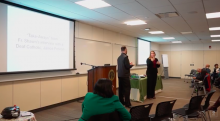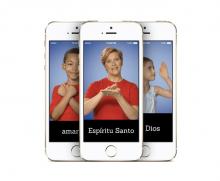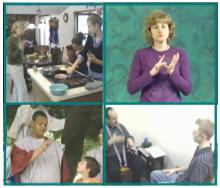In order to promote the meaningful participation of all Catholics within the Church, it is important to not only be aware of different types of accommodations, but also different types of cultures that may arise from physical differences. There is a broad spectrum of auditory differences which call for varying types of accommodations or programs.
Deafness/Deaf Culture:
Across all age groups, approximately 600,000 people in the United States are Deaf (Gallaudet University). Many people do not consider Deafness to be a disability. Since Deaf people have their own language with distinctive cultural and linguistic features, many Deaf people consider their communicative abilities to be fully thriving. There are a number of dioceses and archdioceses in the United States that have Deaf Apostolates or diocesan offices which engage Deaf culture. These offices coordinate the active participation of Deaf people in weekly liturgies, the sacraments, faith formation, and youth ministry. In our Church today, there are ordained priests and deacons that are Deaf, Deaf Catholic Pilgrimages, and homilies available in American Sign Language online.
While accessibility for the Deaf community is becoming more common within the Church, there is still an urgent need for improvement! The National Catholic Office for the Deaf estimates that 96% of Catholics are unchurched. Even though Deafness is not always considered a disability, the National Catholic Partnership on Disability still engages in the topic of Deafness because the Church desires the meaningful participation of Deaf people. NCPD stands with NCOD in the belief that parishes and dioceses can implement practical initiatives to ensure that Deaf Catholics are meaningful participants in the life of the Church. Captioned Videos, Sign language interpreters, Deaf Masses, and Diocesan Deaf Apostolates are all initiatives that can promote this meaningful participation.
Hearing loss:
Some people may consider their auditory difference to be a disability if it prevents them from communicating fully. These individuals may have cochlear implants or may use assistive listening devices. People who lose their hearing later in life because of trauma or old age experience hearing loss which they may or may not consider to be a disability. Captioned videos, American Sign Language interpreters, and assisted listening devices are all examples of accommodations that may help to promote the participation of people who have hearing loss.
Click on the resources below about the Deaf community and about people who have hearing loss.


